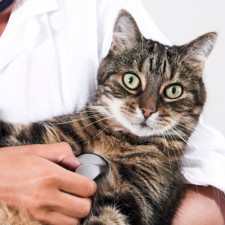Cats aren’t always easy to understand. Fluffy might be purring and cuddly one moment and completely aloof the next. Kitties certainly do like to retain their aura of mystery! When it comes to health issues, however, our feline friends don’t always like to make it known when they aren’t feeling well.
In the wild, showing weakness can attract dangerous predators, so cats learned long ago to mask any symptoms of illness. Often, cats won’t show any signs of sickness until they are quite ill, and by then, treating them could be much more difficult. In this article, a local Carenco, LA vet lists some red flags that indicate your cat needs immediate veterinary care.
Change In Appetite
While Fluffy has been known to be a picky eater, a lack of interest in food is another story. If your furry little diva turns that cute little nose up at her dinner, but begs for something else, she’s probably just being finicky. If your furball doesn’t seem to have any appetite at all, she may be ill. A sudden increase in appetite can also indicate a problem.
Lack of Grooming
Kitties are very good at grooming themselves. Fluffy might spend hours carefully cleaning that pretty fur, and keeping it soft and shiny. Just like people, however, cats don’t always feel up to going through their beauty regimens when they don’t feel well. If your cat’s fur looks greasy, matted, tangled, or unkempt, you may very well have a sick kitty on your hands.
Hiding
We know, sometimes Fluffy likes to nap in quiet, out-of-the-way areas. If your furball doesn’t want to leave her hiding place, however, she may not be feeling well.
Changes in Behavior
Changes in behavior are often a red flag. Aloof kitties that suddenly won’t leave you alone, for instance, could be ill. Friendly, cuddly cats that start acting distant, or even aggressive, may also be sick. This applies to changes in vocalization as well. If your cat starts meowing more, less, or just differently than usual, she could be sick.
These are just a few symptoms of illness in cats. Some other warning signs include changes in litter box habits; straining to urinate; increased or decreased thirst; aggression; vomiting; and diarrhea. Contact us, your local Carenco, LA veterinary clinic, immediately if your cat shows any of these signs.


